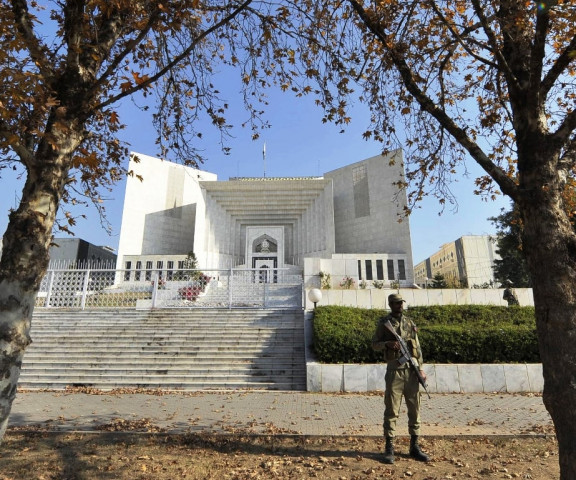Interaction with opposition chief: Plea for determining scope of consultation
Should the leader of the opposition be ‘informed’ or play an integral part in the decision process?

The Supreme Court will have to decide the meaning of ‘consultation’, as it has been moved to interpret the word in the context of the prime minister and president ‘consulting’ the leader of the opposition regarding constitutional maters.
Non-governmental organisation PILDAT (The Pakistan Institute of Legislative Development and Transparency) filed a petition under article 184 of the Constitution earlier in the week. Through Shahid Hamid, a senior lawyer, PILDAT has asked the court to define the scope of required consultation between the prime minister and the leader of the opposition in the National Assembly on the formation of a caretaker government for the next general election.
Although the petition is limited to this point, legal experts believe it has wider ramifications, as it could resolve the lingering uncertainty over how much consultation is required in a number of legal and constitutional matters.
On several occasions in the past, the government believed the term only meant ‘informing’ the leader of the opposition on such matters. The other side had their own interpretation, thinking it meant ‘meaningful’ dialogue should take place before a decision was taken.
After the 18th amendment, there are a number of issues in which consultation with the leader of the opposition has been made mandatory for the government.
Ahmed Bilal Mehboob, the head of PILDAT, told The Express Tribune that the petition was filed a few days back and it was likely to be up for hearing in a week or two.
The issue regarding a caretaker government is as follows. Under article 224 (1A), the prime minister must consult the leader of the opposition on the makeup of a caretaker setup. The Constitution, however, has no definition of ‘consultation’.
Serious disputes on the range of the word have already arisen between the president and the leader of the opposition regarding the appointment of the National Accountability Bureau chairman.
President Asif Zardari maintains that he sought the view of Chaudhry Nisar Ali Khan, the opposition leader, through a letter. Nisar has objected to the process, claiming that consultation should be consensus-oriented.
PILDAT set out their views in a press release: “Since the ‘neutrality’ of caretaker governments is essential for holding a free and fair election in Pakistan, PILDAT felt that this situation may also arise at the time of a general election if the president and the leader of the opposition do not agree on the name of a caretaker prime minister. A similar situation may also arise in the provinces.”
PILDAT also said it believes that the need for a genuinely neutral caretaker government at the federal and provincial levels is particularly pressing because the incumbent president is the head of a political party and at least three provincial governors are also well-known party leaders.
The Constitution, though, does not include mandate the replacement of the president and provincial governors during elections.
The NGO believes the time to act is now, as a constitutional deadlock between the president and the opposition leader during elections would be chaotic and confusing.
Published in The Express Tribune, January 29th, 2012.



1724319076-0/Untitled-design-(5)1724319076-0-208x130.webp)















COMMENTS
Comments are moderated and generally will be posted if they are on-topic and not abusive.
For more information, please see our Comments FAQ